The Union Election At Tennessee's Volkswagen Plant Has Massive Stakes
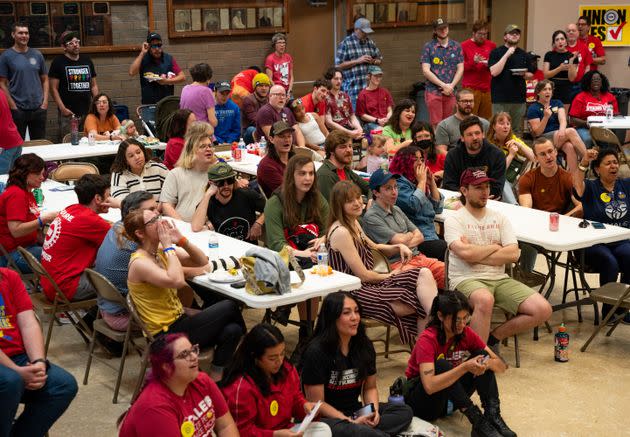
CHATTANOOGA, Tenn. — Roughly 4,000 Volkswagen workers here will decide this week on whether to form a union at their assembly plant. Their votes will shape more than just the future of their jobs — they could mark a turning point for both the United Auto Workers and the auto industry in the South.
The election begins Wednesday and runs through Friday. The union previously lost two factorywide elections at the facility, including a stinging 833 to 776 defeat in 2019. Zachary Costello quietly supported that organizing effort. This time he’s made his feelings known to anyone who will listen, throwing himself into the campaign as a member of the organizing committee.
“I don’t want to narrowly lose again. This time, I’m not sitting on the sideline,” said Costello, 34. “To me it feels like the most important thing I’ve ever been a part of, to the point where it doesn’t even feel real.”
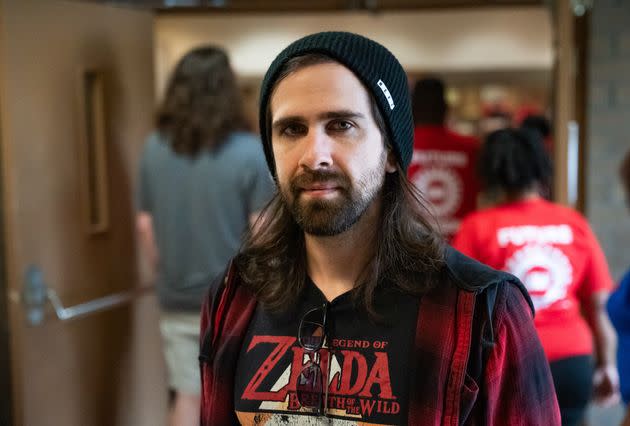
The UAW already represents Ford and General Motors workers at auto plants in the South, but for decades the union has struggled to organize foreign-owned “transplant” automakers in the region, where union membership tends to be low and politicians are generally hostile to labor groups.
As a result, the UAW has lost membership as a share of the industry, forcing the union into a more defensive posture in the places where it represents autoworkers — primarily Midwestern plants run by Ford, GM and Jeep parent company Stellantis. Meanwhile, much of the electric-vehicle boom is expected to take place down South, making the union’s inroads there all the more important.
There are reasons to think this election at Volkswagen of America will be different than previous failed attempts.
The UAW is coming off a headline-grabbing strike last year against the “Big Three” automakers that resulted in significant wage gains and further chipped away at a “two-tiered” system pitting newer hires against veterans. Its fiery new president, Shawn Fain, has struck fear in the heart of corporate boardrooms and overshadowed the corruption scandals under previous UAW leaders.
And autoworkers have been rapidly signing union cards not just at Volkswagen but at Mercedes-Benz and Hyundai plants in Alabama — organizing efforts that a Chattanooga victory could turbocharge.
But Volkswagen workers aren’t so concerned with the UAW’s fortunes; they’re wondering whether union representation will improve their jobs. Costello said that he’s been pleasantly surprised by union support from co-workers he assumed would be “anti’s.”
“It put me in my place because I thought I knew people and I didn’t,” he said. But from other workers he still hears the same arguments from 2019: The union is corrupt, the union is a bunch of outsiders, the union will cost them their jobs.
Meanwhile, some politicians, like GOP Gov. Bill Lee, have tried to tip the scales against the union. Echoing the fear-mongering from Tennessee Republicans during previous UAW campaigns, Lee recently warned that unionizing the Chattanooga plant would be a “big mistake.”
“We’ve seen plants close that made the decision to go union,” he said balefully. “So I hope that’s not what happens here.”
In 2014, state lawmakers threatened to take away tax subsidies if the plant went union.
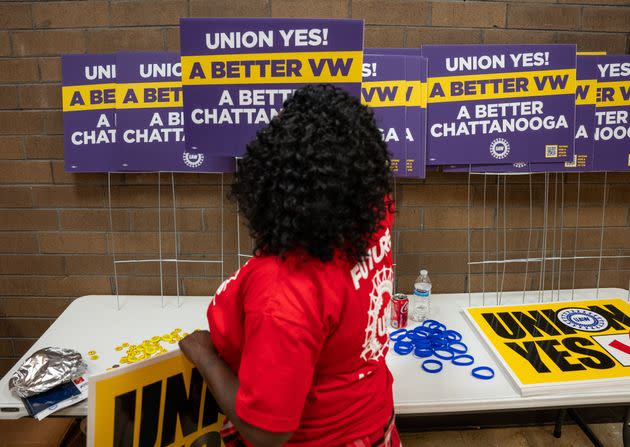
One of the union’s challenges is that Volkswagen has always paid decently for the area. The company says the average plant employee will earn above $60,000 this year. Production workers start out near $23 per hour and top out above $32, which beats being a picker at the Amazon warehouse a mile down the road. But the contracts that the UAW just won will push top rates well beyond that figure at U.S. automakers’ plants, climbing to nearly $43 for production workers at Ford by 2028.
In interviews, several Volkswagen workers who support the UAW drive said that the job can be grueling for the pay. One of the top grievances is time off: Workers said that they routinely burn through their paid leave during plant shutdowns for retooling and maintenance; otherwise they wouldn’t get paychecks. They also complained of repetitive-motion injuries and a pressure to ignore aches and pains as they move SUVs, including Volkswagen’s electric ID.4, off the line.
“The safety and the consideration for ergonomics and people’s sanity just kind of takes a back seat to the production,” Costello said.
Volkswagen said through a spokesperson that it had recently increased emergency paid time off “based on employee feedback.” The company also defended its safety record, saying it was proud of “the world-class production environment we have created in Chattanooga.”
“We take safety very seriously in the plant and our injury rates are significantly below the industry average,” the company said.
Costello said that he still experiences back pain from the way he twisted his body over and over handling seat belts in a previous job at the plant. He’s been telling co-workers that even if their wages are better than at other jobs they’ve had, they should still expect more.
“We should not be living on subsistence. We should not just be proud that we can afford an apartment and put food on the table,” he said. “We should be thriving. What kind of bleak existence do we live in where it’s greedy to want more than to just survive?”
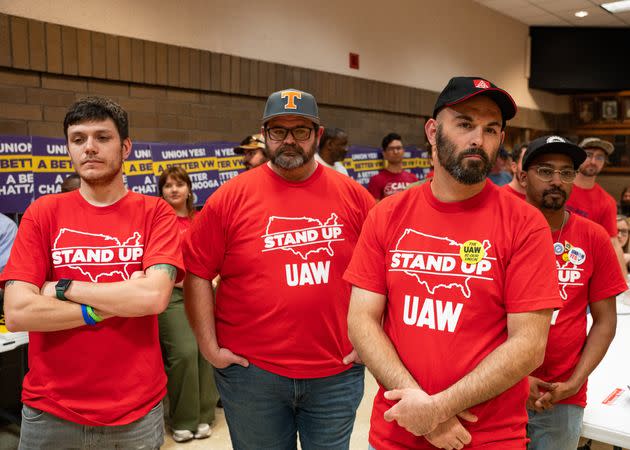
‘Fear Ruled The Day’
During its earlier organizing efforts in Chattanooga, the UAW was hobbled by the concessions it had made to help stabilize the Big Three in the wake of the Great Recession. The givebacks narrowed the compensation gap between union and nonunion auto plants, leaving workers at places like Volkswagen to rightfully wonder what the benefits of union membership would be. A federal corruption investigation that led to several guilty pleas by union officials didn’t help.
But the union’s image has changed dramatically in the past year. As part of a consent decree with the Justice Department following the corruption probe, UAW members cast ballots in a direct election for union leaders in 2023, rather than having them chosen through an opaque delegate system that critics long said was rigged. The reformer Fain harnessed a rank-and-file thirst for change and defeated the establishment candidate, laying the groundwork for the Big Three strike.
News of the walkouts in September had an immediate effect inside the Volkswagen plant, according to Yolanda Peoples, a union supporter and assembly worker who was around for the two earlier, failed organizing efforts. Plenty of workers like Peoples had been pushing for a union all along, but the public contract battle — with Fain literally tossing Ford’s offer in the trash can — made some workers reconsider their expectations for the job.
“A lot of people there didn’t really know about the UAW,” Peoples said. But the strikers were “people that do the same thing that you do every day, and they’re standing up against these big corporations, getting what they feel as though they deserve. ... It made it look possible. The exposure was wonderful for us at the plant,” she said.
Fain spoke about the battle with U.S. automakers in terms of class struggle, deeming the contract victory “a turning point in the class war that has been raging in this country for the past 40 years.”
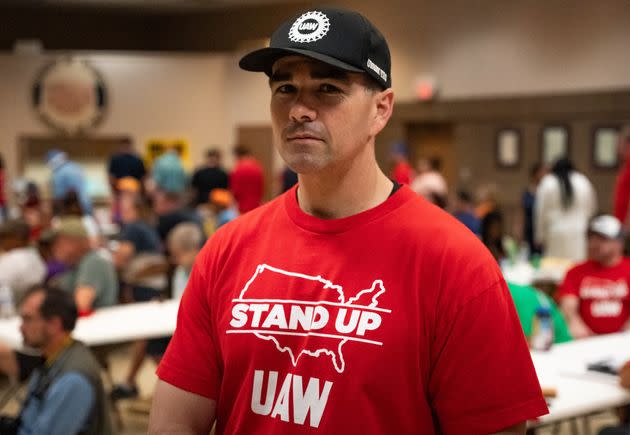
Volkswagen union supporter Isaac Meadows has moderated that message for the Chattanooga audience. He noted that a lot of workers are grateful for their jobs and don’t want an adversarial relationship with the company. But just about everybody has something that they want changed, whether it’s more paid leave, a higher top pay rate or some kind of recourse against discipline that can impact bonuses.
“We do great work for the company. The company is making a lot of money off of our work. It’s not unreasonable for us to ask for more,” said Meadows, who moved from Nevada a year and a half ago intent on getting a job at the factory. “That’s been my message. It’s a little tamer than Shawn.”
He added: “The car is the only important thing in that plant. ... The job itself is very fun, but they push really, really hard. We’re not robots, but they push us like we’re robots.”
In 2014, Volkswagen seemed to almost welcome the union because the company sought to create a German-style works council, which many legal experts thought necessitated a union to be legal. But the company and the UAW faced extraordinary pressure from Republican politicians looking to keep a union out as part of their business-friendly, “right-to-work” pitch to employers. Just 6% of Tennessee workers are union members, compared with 10% across the U.S.
Tennessee’s then-Sen. Bob Corker, a Republican, said publicly that the plant would get a new SUV production line if workers rejected the UAW, while state legislators said that Volkswagen’s tax incentives could disappear with a union victory. In 2019 Volkswagen invited Lee, the governor, to give a speech at the plant discouraging unionization and urging workers to keep a “direct relationship” with the company.
Lee has publicly opposed the union drive once again, but the political interference seems more muted this time.
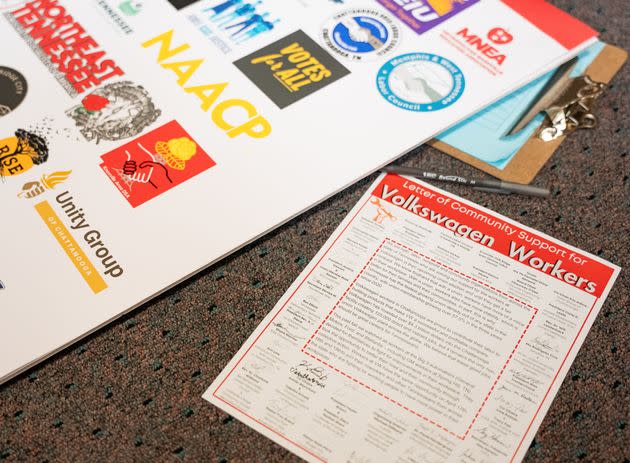
Unions in general are very popular at the moment, and nearly 60% of U.S. adults supported the Big Three strikers even though the work stoppage would squeeze car and truck inventories. Chattanooga’s GOP congressman, Rep. Chuck Fleischmann, recently told HuffPost that he’d “stayed out of it this time.”
“I have never really been pro-union,” Fleischmann said, “but this is something that I’m going to let the workers decide.”
Workers said in interviews that some supervisors have made their anti-union positions clear, but for the most part the company has not been pressuring them to vote against the union and hasn’t been forcing workers to attend anti-union meetings. (Volkswagen said that supervisors hold daily meetings but are “staying neutral and fact oriented.”) Peoples said workers are less receptive to arguments that a union will cost the plant production, noting how much both Volkswagen and the government have invested in the plant since its 2009 groundbreaking.
Troy Hunt, a longtime union backer, said that “fear ruled the day” in the earlier organizing efforts. This time he’s seen co-workers more open with their support and managers less aggressive with their opposition. He attributed the company’s cautious stance in part to the Volkswagen Group works council in Europe throwing its backing behind the campaign. The council’s president noted that the Chattanooga facility was an outlier globally at Volkswagen for not having employee representation.
“I think the company has been leaned on ... to appear neutral,” Hunt said. “I know supervisors who truly are neutral. I know some supervisors who are not. But the company, right now, I believe they’re trying to appease those in Germany that are watching.”
Volkswagen said it hopes every worker will “review the relevant facts” before voting. “We respect our employees’ right to decide this important issue through a democratic process,” the company said in a statement.
A group calling itself Still No UAW has been placing signs near the factory urging workers to vote no. A visit to the group’s website pulls up the image of a social media post from Donald Trump’s Truth Social platform in which the former president called Fain a “Weapon of Mass Destruction on Auto Workers.” The site highlights the UAW’s support of President Joe Biden and its political spending to help Democrats. The group didn’t respond to interview requests submitted through the site.
Assembly worker Patricia McFarland said that she’s been putting out union T-shirts on a chair inside the plant, and some workers have left anti-union messages beside them. McFarland had worked in union auto plants in Michigan before moving to Tennessee two years ago. She said it’s been difficult speaking to many of her co-workers, particularly the younger ones, about whether they should unionize.
“One kid said to me that he’s really big into cars, and if we get a union, the prices of cars are going to go up to where nobody can afford to buy them,” McFarland said. “A lot of these kids … they’re happy with the money that they get.”
McFarland has been supporting the union effort primarily because of the work pace. She said supervisors expect her to accept aches and pains “just because I’m older.”
“They work you to death,” she said. “I’m 56 years old and I have never worked this hard in my entire life.”
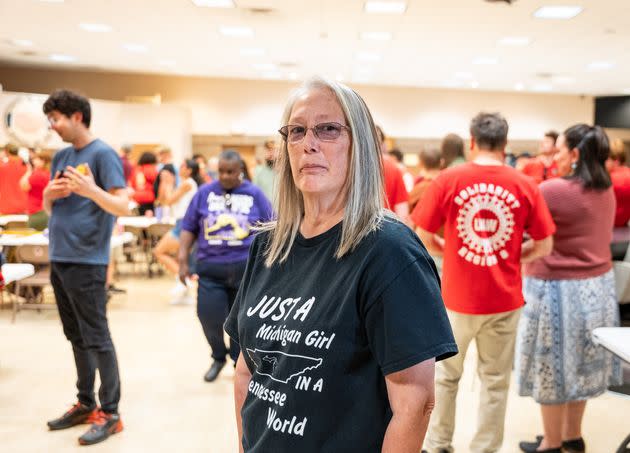
The ‘UAW Bump’
Several nonunion manufacturers boosted pay following last year’s strikes, likely to help discourage unionization. Fain has called these raises the “UAW bump.” (At a Senate hearing, the union leader said it stands for “U Are Welcome.”) At Volkswagen, the year-end pay hike was 11% — as it turns out, the same immediate raise that UAW members received. Volkswagen said the increase was the result of its regular annual compensation review.
The company also slashed the time it takes to reach top pay after the UAW won a similar concession from the Big Three, demonstrating how the union can still set industrywide standards.
But organizing the likes of Volkswagen, Mercedes, Toyota and Hyundai would increase the union’s bargaining power across the sector, including in Detroit. Ford, GM and Stellantis like to point to their higher labor costs relative to the foreign automakers and the nonunion, Texas-based Tesla. So the UAW’s power will always be limited as long as the Big Three′s competitors remain nonunion, said Art Wheaton, an expert in labor negotiations at Cornell University.
“This is a big deal, since you need to increase market share of the number of plants that are unionized to give you more leverage,” he said. “Really the UAW needs to have more than just the Detroit Three organized if they want to have the same sort of impact to lift wages and benefits.”
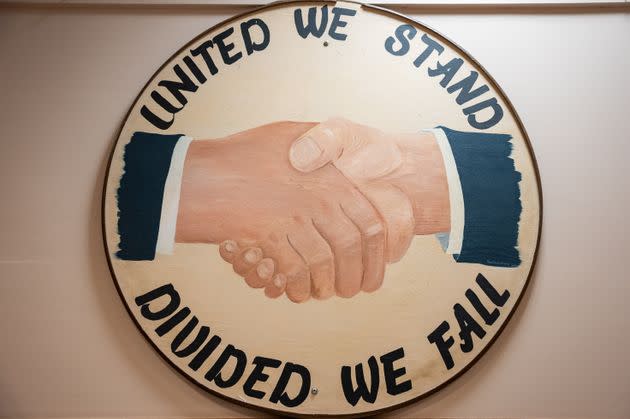
Peoples, the assembly worker, turned into a union leader in part because her father had worked in General Motors’ Doraville, Georgia, assembly plant outside Atlanta, a UAW-represented facility that closed in 2008. She doesn’t feel that Volkswagen’s 401(k) plan is preparing her for retirement in the way her father’s pension did for him.
Peoples said that union supporters like herself learned a lot from the earlier, failed efforts. This time she’s tried to focus on explaining to others what negotiating a contract might look like, or what union representatives could do for them inside the plant, “instead of just telling them, ‘Vote yes, vote yes,’” she said. And this time they aren’t knocking on workers’ doors, which many found intrusive. “That’s one of the biggest things that people hated,” she said.
In 2019, when the union ended up losing by just 57 votes, Peoples felt as though the campaign had been rushed. She feels optimistic this week because she’s convinced that union supporters slowed down and put in the necessary work. She’ll know for sure once the ballot count gets underway Friday night.
“This time we took our time. We educated a lot of people,” Peoples said. “ And that’s one of the reasons why I feel as though it’s different this time.”


